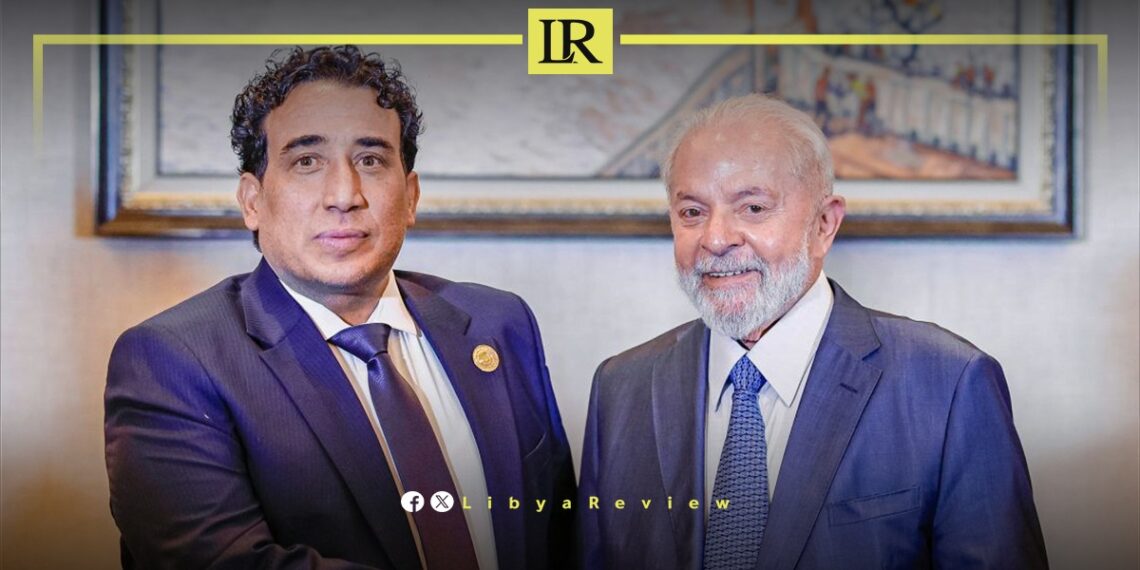Mohammed Al-Mnifi, the head of Libya’s Presidential Council, has formally appealed to Brazilian President Luiz Inácio Lula da Silva for the reopening of Brazil’s embassy in Libya. This request was made during a bilateral meeting on the sidelines of the African Union Assembly in Ethiopia, marking a potential step towards re-establishing diplomatic ties between Libya and Brazil.
The Office of the Brazilian President is currently evaluating this request, which comes against the backdrop of the historical ties between the two countries, initiated with the opening of Brazil’s embassy in Tripoli in 1974. The relationship between Brazil and Libya has seen various phases, initially focusing on economic cooperation and experiencing ups and downs, especially after the lifting of UN sanctions on Libya in the 2000s.
Since the overthrow of Muammar Gaddafi in 2011, Libya has faced ongoing internal conflict and political instability, leading to a fragmented state with multiple factions competing for power. These challenges have had broader implications for regional security, migration, and international relations.
Libya’s initiative to request the reopening of the Brazilian embassy is seen as a key move in its efforts to rebuild diplomatic connections and stabilize its political landscape after years of conflict. The potential re-establishment of the Brazilian embassy in Tripoli could symbolize Libya’s progress in re-integrating with the global community and highlight the role of diplomatic engagement in promoting mutual development and understanding.
In related developments, North Korea, also known as the Democratic People’s Republic of Korea (DPRK), has closed its embassy in Libya, continuing a trend of reducing its diplomatic presence in Africa. This move marks Libya as the sixth African country from which the DPRK has withdrawn, reflecting a broader reevaluation of its diplomatic and economic engagements in the region, according to John Everard, a former British Ambassador to North Korea.


